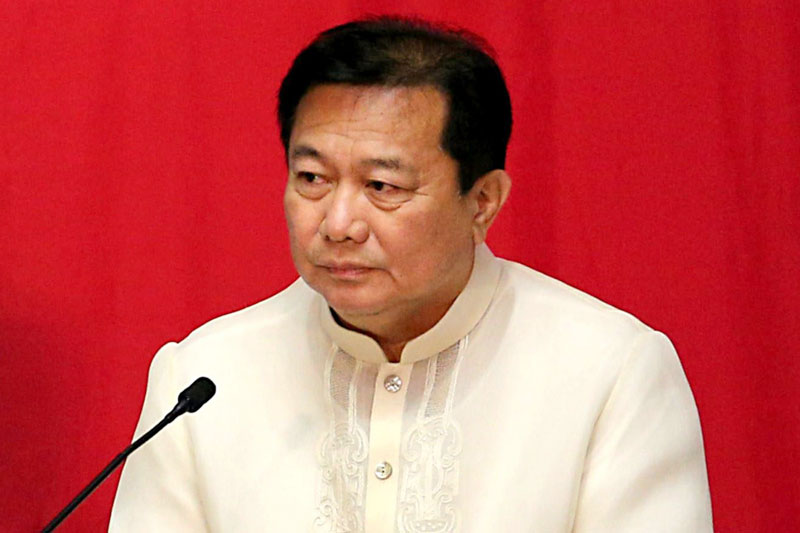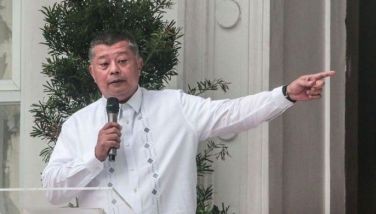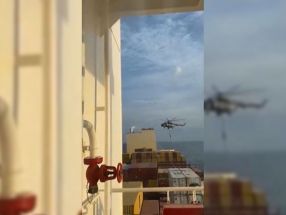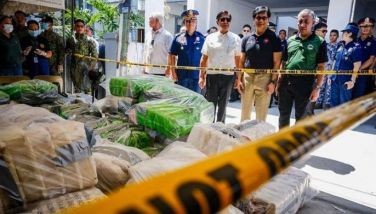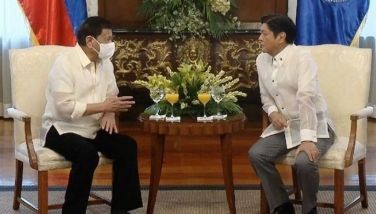Bishop seeks bigger quota for churches
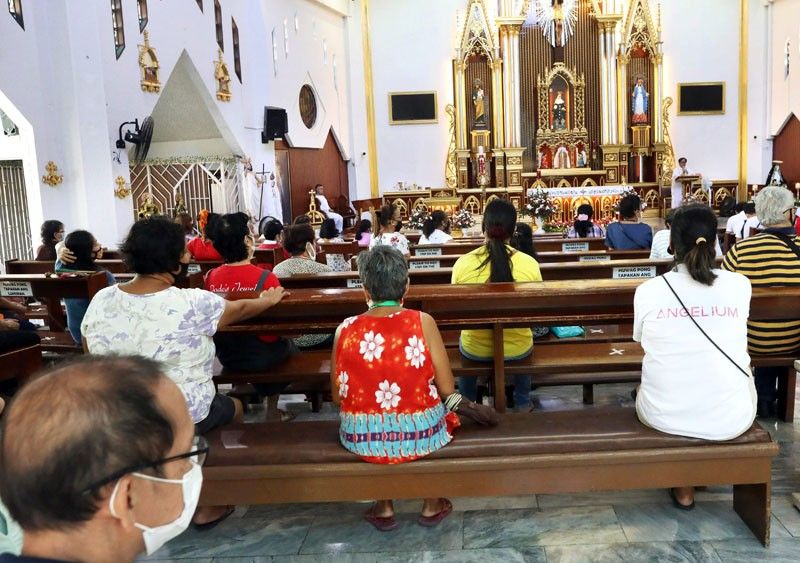
MANILA, Philippines — While the holding of religious gatherings has been allowed by the government in modified enhanced community quarantine (MECQ) and modified general community quarantine (MGCQ) areas, limiting the number of mass attendees to five or 10 persons “is like saying no to religious gatherings,” a Manila bishop said yesterday.
Criticizing the regulations the Inter-Agency Task Force on Emerging Infectious Diseases (IATF) had set, Manila Auxiliary Bishop Broderick Pabillo said the limitations the government set on the number of allowed persons inside churches were “unreasonable.”
“In the church, we are happy that in both MECQ and MGCQ, religious activities are allowed. But at the same time the limitations they set to religious activities are unreasonable – five persons for MECQ and 10 persons for MGCQ. It is just another way of saying that you do not have religious activities,” the apostolic administrator of the Archdiocese of Manila said.
“Imagine, big churches such as the Minor Basilica and Metropolitan Cathedral of the Immaculate Conception (Manila Cathedral) and the National Shrine of Our Mother of Perpetual Help (Bacalaran Church) open, but there are only five persons inside,” he added.
The bishop said it would have been better if the government imposed the measurement of the distance between two persons inside a church to observe physical distancing and prevent the spread of coronavirus disease 2019 (COVID-19) than limiting the number of attendees to five or 10.
“There are many churches with different sizes. Five persons for such a big church as Baclaran or the Manila Cathedral is laughable. The one-size-fits-all directive is really unreasonable,” he said in a statement.
“Why not give instead the instruction that there be one meter or two-meter distance between persons in a church?” Pabillo said, adding that the IATF came out with the regulations without asking the opinion of religious leaders.
“This directive on religious activities was surely taken without any consultation with the religious sector. This is a problem with the government. They make arbitrary decisions without proper consultation with the sectors involved. So they came out with unreasonable directives,” he said.
Catholic Bishops’ Conference of the Philippines-Public Affairs Committee executive secretary Fr. Jerome Secillano agreed with Pabillo.
“I think (it’s) an ‘abuse of prudence.’ There are so many big churches in the country that even with a hundred attendees the one or two meters required for social or physical distancing will not be violated,” Secillano said.
“The IATF should have at least considered that reality. Besides, there are dioceses that have already formulated a detailed guideline on how to resume the public celebration of liturgies. It would be better for the IATF to look at it and decide the viability of the proposed strategies,” he said.
No to teleconferencing for confessions
Meanwhile, CBCP president Davao Archbishop Romulo Valles has discouraged the use of telephone calls and Zoom teleconferencing for confessions.
While the Catholic Church has made livestream masses available to the faithful, Valles said the use of modern communication such as Zoom teleconferencing to hear confessions is not advisable.
Since the start of the lockdown, the CBCP has advocated the use of social media such as offering livestream of masses to observe physical distancing to prevent the spread of coronavirus disease.
However, in a 10-page Recommendations and Guidelines for the Liturgical Celebration in “New Normal” Condition, the CBCP is not in favor of fully adapting the same modern mode of communication in hearing confessions.
He suggested that instead of using the confession box, the confession be done in the parish office or better outdoors, with both the priest and the penitent wearing face masks.
“The sacramental nature of confession requires that it must be done in person; however, it is advisable not to use the confessionals in the church. Although confessions may be heard in the parish office, it is preferable that they be heard outdoors, where there is better circulation of air and additional space for safe distance between the confessor and the penitent,” Valles said.
“Priests are reminded not to hear confessions via telephone or Zoom teleconferencing, though they may use these methods to offer the penitents spiritual counsel,” he added.
In the guidelines, the prelate urged the elderly, the sick and the young and children to stay at home and not to attend masses.
If circumstances would allow, a priest, a deacon or extraordinary minister of Holy Communion may visit them to bring the Eucharist, Valles said.
Instead of going to churches, it is strongly recommended that the faithful continue to use livestream or televised masses.
- Latest
- Trending















